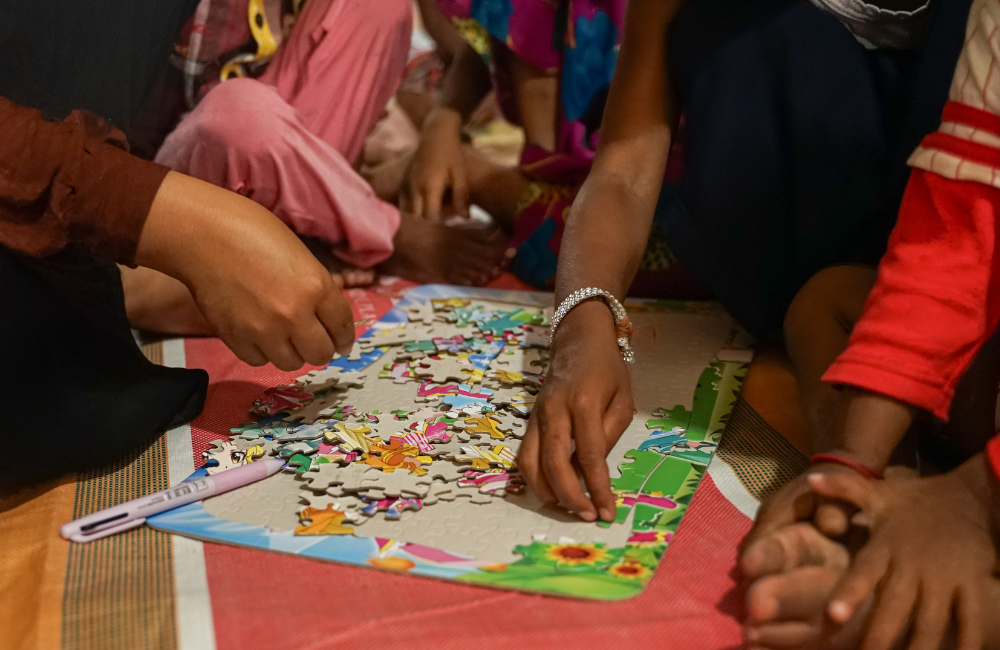Reforming the child welfare system in Indonesia
In Indonesia, up to half a million children grow up in orphanages – the highest proportion of any country in the world. Yet almost 90% of these children have at least one living parent. Save the Children's Families First program ran between 2019 and 2021 and worked to bring children back into family and community care.
We’re strengthening child protection systems in institutions, and improving the quality and quantity of social workers supporting families. We’ve also developed a parenting program to help create a more protective environment for children at home.
Why alternatives to institutional care are important
Struggling parents are giving up their children, believing it’s the only way to give them a better future. But growing up in orphanages is harmful for a child’s development and leaves them vulnerable to abuse and neglect. Many girls and boys suffer emotional trauma and developmental delays – institutionalisation in young children is one of the biggest threats to early brain development – and their health, education and emotional wellbeing can be affected well into adult life.
Despite receiving government funds through the national welfare scheme, regulation of institutional homes in Indonesia remains weak. Children are not better off but can become trapped in a system that doesn't truly support their needs.
Save the Children's Families First program
Together with the Australian government, we’ve worked to strengthen systems in Indonesia to change how children are protected at home and in institutions. By working closely with the Indonesian government, we’ve helped to reform child welfare systems and shifting focus away from institutions towards family and community based care for children.
Over many years, we helped families, communities and policy-makers understand what child protection is, and why children are better off in family or community care. We’ve worked directly with children in inappropriate care to address their individual needs. And we’ve advocated for legal and policy change that will support children who remain in care.

We’re proud to have worked with partners and the Indonesian government to make sure children are safe at home, not in orphanages.
Photo: Purba Wirastama/Save the Children.
The bond of family
When they fell on hard times, Dina* and her husband felt they had no choice but to send their youngest son, Edi* to live in an orphanage.
“I didn’t have any option to care for him at home,” says Dina. “Many babies are being abandoned, I don’t want to be like that. So, I felt I had to put Edi in an institution – not to be abandoned, but left there for a while, so I can bring him home in the future.”
But Dina was haunted by the decision she felt forced to make. “When Edi first entered the orphanage, I felt I was in limbo, between dead and alive … I couldn't sleep, I didn't want to eat.”
Aware of Dina’s situation, Save the Children workers spent time with the family and convinced them that – even without a lot of money – their family was still the best place for Edi to grow up.
Edi has now returned home. “
When I went to the orphanage to take Edi home, I was so happy … I thought he might not like it here. I thought he would not want to be in this house. But he and I bonded immediately and we didn't want to be apart from each other any more.”
How we know we're made a difference
Our work through the Families First project stemmed from what children in institutional care told us about their lives. It was their voices that called for change, and their research that enabled Save the Children to advocate for an alternative approach to child protection.
As a result of Families First, child protection was made a national priority in Indonesia. During project implementation, more than 1,000 girls and boys were protected from the risks of institutional care. Half of these success stories involved finding alternative family or community care for at-risk children to prevent them from entering an institution in the first place. Of children in care, some were reunited with their families, and others adopted or settled in foster homes.
There was an increased investment in family and community care by the Indonesian government, and a reframing of the role of social workers to support this. Referral systems for children in care were also introduced – linking children to healthcare, counseling and legal services, which strengthen the ability of families to care for their children at home.
*Names have been changed.
 This work was supported by the Australian Government through the Australian NGO Cooperation Program (ANCP).
This work was supported by the Australian Government through the Australian NGO Cooperation Program (ANCP).